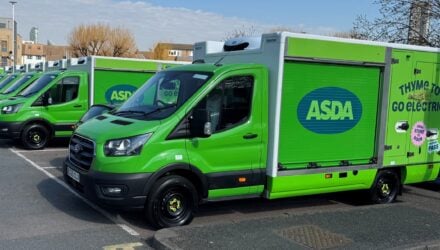In January this year, the number of electric vehicle (EV) charging points in the UK was up seven per cent compared to October 2022, with an eight per cent increase in rapid charging points. These slow but steady increases marked by the Department for Transport suggest we’re heading in the right direction. But momentum needs to accelerate if we’re to stand any chance of getting close to supporting the move to electric HGVs and net zero targets.
The EV market is growing for sure; 26.7% of all new car registrations this year are expected to be electric. With new EV models being introduced to the market at record speed – there’s little in the way of denying that the EV revolution is upon us.
However, analysis by The Times reveals that there are now 30 electric vehicles for every public charging point, compared with 16 at the start of 2020. For e-HGVS, there is still inadequate coverage to support the main long-haul routes from the southern European crossings to northern hubs. Infrastructure is failing to keep up with demand. In addition, the price of buying new e-HGVs is limiting all but the biggest fleets. Even then, most manufacturers require a lead time of 12-18 months.
 Despite acceleration in demand, it’s clear a viable EV supply chain infrastructure network does not yet exist. While Zeus and many in the industry are doing their utmost to push forward, the clear need is that the British government needs to play a bigger part. From energy policy – investing in renewables and domestic energy production, which would help support the increased demand of the grid – to tax relief or other support incentives to help small to medium fleets develop, there is a lot that the government is conveniently ignoring.
Despite acceleration in demand, it’s clear a viable EV supply chain infrastructure network does not yet exist. While Zeus and many in the industry are doing their utmost to push forward, the clear need is that the British government needs to play a bigger part. From energy policy – investing in renewables and domestic energy production, which would help support the increased demand of the grid – to tax relief or other support incentives to help small to medium fleets develop, there is a lot that the government is conveniently ignoring.
Unfortunately, economic incompetence, geopolitical instability due to the invasion of Ukraine, record diesel fuel prices, unprecedented inflation and a looming recession, has caught this government out. And rather than respond by investing, supporting, and building – they chose to hand-off their part in national infrastructure.
The urgency of moving away from imported fuels, securing domestically produced energy and cutting carbon emissions has never been clearer, yet the UK will struggle to reach net zero targets by 2050 unless the government dramatically ramps up its efforts.
However, there is hope. A breakthrough moment last year saw the government pledge to expand its £950 million Rapid Charging Fund to cover all road transport – a positive development that will help lift the road haulage industry into the 21st century.
Electric vehicles, including heavy goods vehicles (HGV)s and lorries, are critical to the UK achieving its net zero sustainability targets. This in turn also delivers long-term benefits to haulage companies, which are under increased pressure with cost of living and fuel price rises, as well as Brexit and a growing drivers’ shortage.
In addition, we see the government supporting new pilots and actively looking at new technology such as catenary infrastructure, which could negate the need for charging points. In addition, they have partnered with bodies such as the University of Cambridge’s Sustainable Road Freight Research Centre, from which our new Head of Sustainability joins, to encourage further simulations and pilots of electric and alternative fuels.
But this is not enough. There needs to be a faster and more connected plan – the disjointed approach currently, leaving local authorities to figure out their own needs, is just hindering any meaningful future. From planning permissions to tax incentives, subsidies through to settling issues involving perceived ‘street clutter’ and a lack of a single vision, this current approach falls short.
It’s clear that there is a growing appetite for EVs and although the carbon intensity of electric batteries makes this technology only a steppingstone, it’s an important stepping stone. We’re also seeing a shift in the private sector – not just towards greener vehicles, but towards embracing other ways of reducing CO2 emissions. Of course, innovation by business alone can help push adoption by only so much. We all need to work together to add fuel to this revolution and also work in liaison with our European neighbours – universal standards will be the key to ensuring efficiency and effectively ensuring our future supply chain supports both economic needs and ecological needs.
Authors: Jai Kanwar and Clemente Theotokis are co-Founders and joint-MDs of digital log-tech start-up Zeus


















